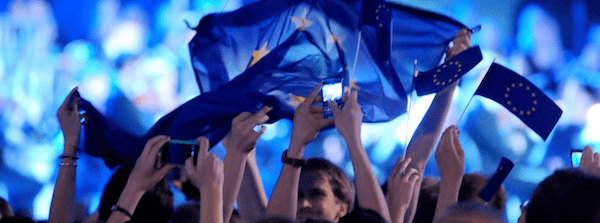In 2019 the EU and Eastern partnership six member states are celebrating the 10th anniversary of the Eastern Partnership program. Many conferences, expert workshops and other events were organized to assess the successes and failures of the EaP. Meanwhile, alongside with assessments of the past the future of the program is being actively discussed. EU even launched the ‘Structured Consultation” on the future strategic direction of the EaP and tasked the Commission and the European External Action Service to present proposals. Member States and Eastern partner countries as well as other actors including civil society, academia and think-tanks were invited to share their views on a new post-2020 policy framework and the perspectives of EU enlargement.
Meanwhile, the future EU enlargement in the Post-Soviet space depends on two key variables, the EU internal transformations and the perspectives of EU – Russia relations. The EU currently faces one of the most severe crises during its 26 years history. Brexit, the relative increase of Eurosceptic powers, as well as significant problems in Euro – Atlantic relations do not bode well for the future development of the Union. The growing disagreements among key EU members on the role of NATO have added confusion within EU. The France decision to veto the launch of North Macedonia and Albania accession talks was an indicative of growing problems. However, it should be noted that despite the fact that other EU members were supporting North Macedonia and Albania membership bid, all understand that EU has not fully and successfully digested its recent enlargement and that Union needs to reassess enlargement criteria and procedures.
On November 15 France presented its “Reformed approach to the EU accession process”. According to French model member candidates should make the reforms in a seven-step process, gaining access to selected EU programs and funds along the way, before arriving at full membership. The seven steps are rule of law and fundamental rights; education and research; employment and social affairs; financial affairs; the single market, agriculture, and fish; foreign affairs; and others. The key in French proposals is the idea that upon finishing each step, candidates could gain access to relative European programs and funds simultaneously keeping the possibility of the full accession at the end.
On November 25 Germany and France have also called for creation of a “Conference on the future of Europe”. According to proposal conference may convene as early as February 2020 and finish it work at the first half of 2022. The two countries hope the conference can help clarify the EU’s stance on key issues like security and defense, its role in the world system, trade, competitiveness and European values.
The six EU member countries, among them Austria, the Czech Republic, Poland, Slovak Republic, Italy and Slovenia have already expressed support for France suggestion on the new model of enlargement. They have recognized the shortcomings of the current accession process but also suggested to open accession negotiations with Albania and North Macedonia no later than in March 2020. However, even if all EU member states are able to reach consensus on the new enlargement criteria and open negotiations with North Macedonia and Albania in 2020, obviously the process itself will take more time and resources. This means that any new enlargement towards Western Balkans most probably will take place after 2024 and some countries of the region such as Kosovo and Bosnia Herzegovina will not be EU member states at least till 2030.
Meanwhile, the whole enlargement debate is now focused solely on the Western Balkans. EaP member states, among them three South Caucasus republics are not even remotely perceived as a potential EU member states in foreseeable future. EU diplomats as well as representatives of EU think tank community in private discussions accept that neither Armenia, nor Azerbaijan and Georgia have any chances for EU membership at least till 2035-2040. The key mechanism for these states interaction with EU will remain the EaP. The bilateral relations will be defined by the Association Agreement for Georgia and CEPA for Armenia. Azerbaijan – EU relations most probably will be regulated by the new agreement currently negotiated between Brussels and Baku.
Another process seriously affecting EU connections with the South Caucasus is the EU – Russia relations. Here there are some hints of possible start of normalization process. The idea is actively pushed forward by France. Germany has more cautious approach; however, as Chancellor Merkel is reaching the end of her final tenure in 2021, Germany’s political elite is more focused on domestic political developments seeking to shape the contours of post Merkel Germany. Some Eastern European countries as well Baltic States oppose any rapprochement with Russia, while Hungary, Bulgaria, and Czech Republic have more neutral stance. It’s difficult to assess in what direction EU – Russia relations may develop, and much will depend on US policy. If Americans are ready to start the normalization process with Russia as the only viable option to prevent the growing Russia – China cooperation, most probably EU will take more reconciliatory position. In any case, EU clearly understands that Russia is the key player in the South Caucasus and her interests should be accounted for.
Given the very vague perspectives of European integration, the Georgia seems to be in the worst position among all three republics. Armenia is a member of Eurasian Economic Union and managed to sign a new agreement with EU in 2017. Both Yerevan and Brussels are satisfied with CEPA and the core issue here is the implementation. “The more for more” approach envisages that Armenia may receive more benefits from EU in case of better implementation and simultaneously keep its strategic alliance with Russia as deterrence against Turkey. Armenia has no EU membership ambition and the crush of any membership perspective is not perceived in Armenia as a strategic defeat.
Azerbaijan has no EU membership aspiration too. Seeking to have good relations with all key players in the region, Azerbaijan views its relations with EU mainly through energy diplomacy prism, using southern gas corridor project as key channel for its interactions with Brussels. Thus, the absence of any EU enlargement plans in the South Caucasus will not negatively affect Azerbaijan’s strategic calculus.
The case is different for Georgia. The country has chosen Euro-Atlantic integration path since late 1990s. The process has been accelerated since the “Rose revolution” of 2003, and despite the growing criticism towards current Georgian authorities of having some hidden agenda of bringing Georgia back to the sphere of Russian influence; the integration into European and Euro-Atlantic structures (EU and NATO) is fixed in the Georgian constitution amended in 2017. However, Georgia has no clear path forward in both directions, as along side with EU, there are growing voices in NATO which put doubts on the necessity for the further NATO enlargement towards post-soviet space. Meanwhile, given Russian efforts to increase its influence in the South Caucasus, the deadlock in Euro-Atlantic integration most probably will increase the Russian pressure on Georgia. In this context, the development of relations with China could be an alternative for Georgia but, unfortunately for Tbilisi the US has clear negative attitude towards any Georgia – China strategic cooperation.
Thus, the ambiguity over the EU enlargement process will have most negative impact on Georgia in the South Caucasus. Given the domestic political instability there, Georgia enters 2020 burdened with questions which no clear answers.






